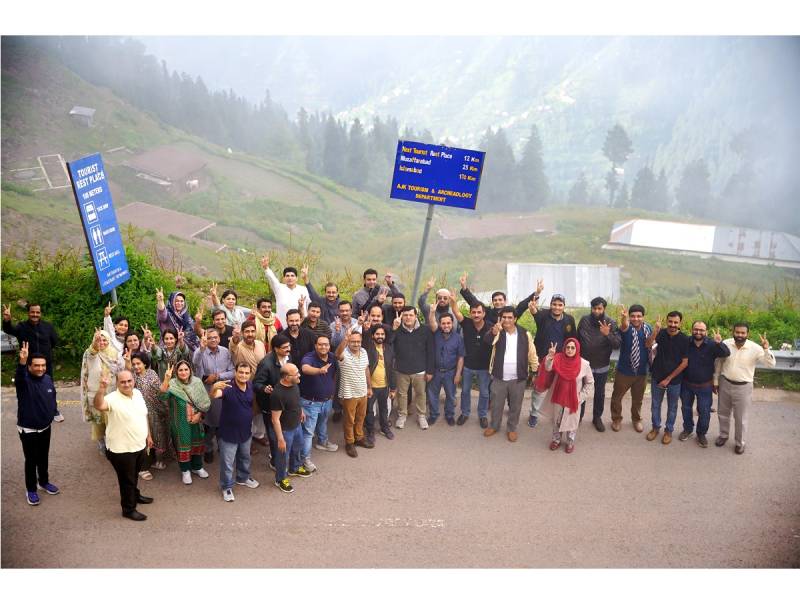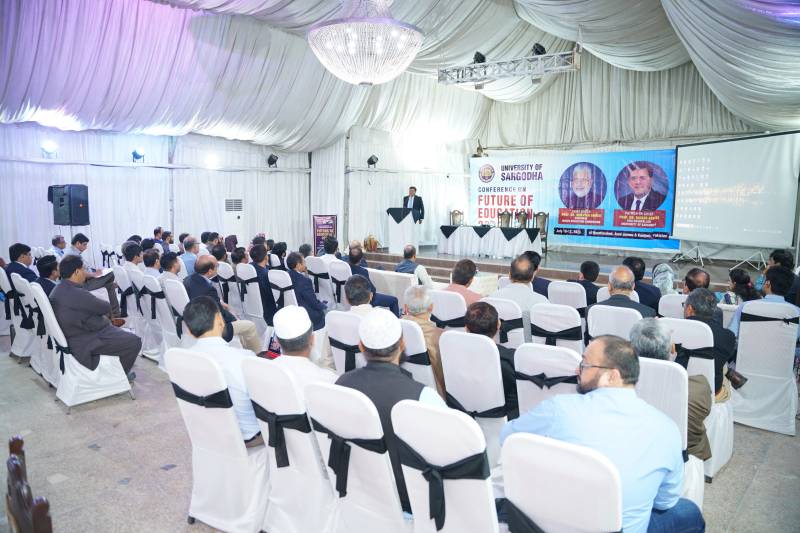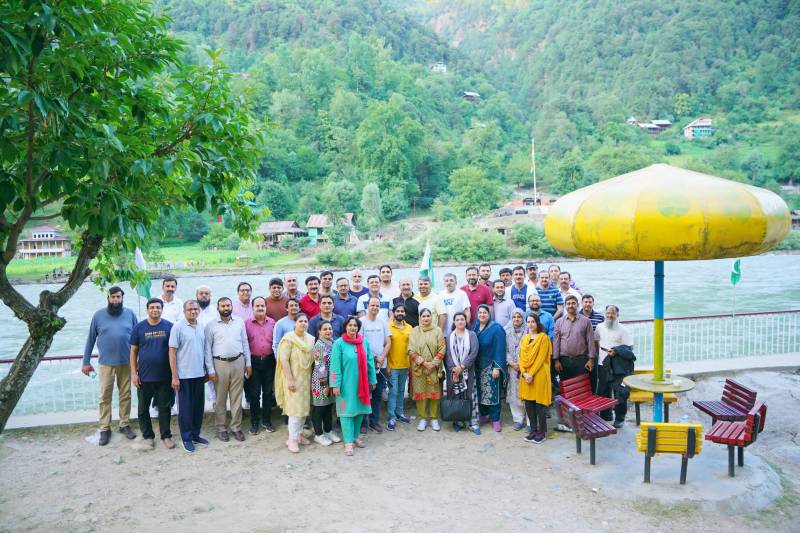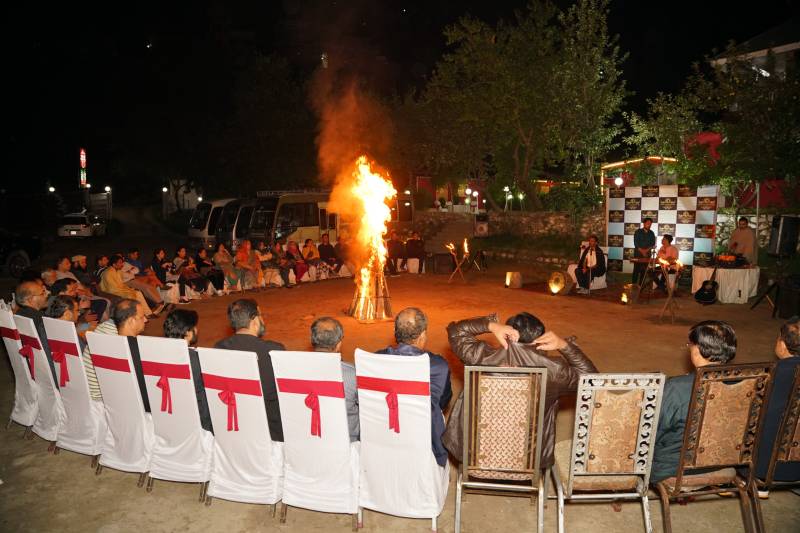
History generously recognises Kashmir as a centre of academic excellence, attracting scholars, philosophers and seekers of knowledge from far and wide. It tells us about the rich educational heritage of the region dates back to ancient times when educational centres such as Sharda Peeth flourished in the state. This seat of wisdom fostered a deep intellectual tradition, which promoted the study of various fields including philosophy, literature, mathematics and astronomy.
During the medieval period, this beautiful region further flourished and being known as a hub of education and enlightenment. The glorious rule of eminent Sultan Zain-ul-Abidin, known as Bud Shah, witnessed a golden era of learning in the valley. The Sultan's patronage of education played a pivotal role in establishing educational institutions, including libraries, schools and centres of higher learning. Bud Shah was not only a patron of learned men but also a scholar and a poet. Scholars, poets, as well as artists thrived under his reign, creating a vibrant intellectual atmosphere that permeated every corner of Kashmir.
Moreover, Kashmir's profound association with Sufism has played a significant role in recognising it as a hub of spiritual and intellectual exploration. Sufi saints and their mystical teachings attracted hundreds of thousands of scholars and students, fostering an atmosphere of open-mindedness and thirst for knowledge.

In the recent past, Prof Dr Qaisar Abbas, the Vice-Chancellor of the University of Sargodha, unfolded his ambitious plan to organise his university's conference titled “Future of Education-2023” in the picturesque city of Muzaffarabad. My initial surprise turned into admiration.
In his insightful explanation, Dr Abbas highlighted the profound rationale behind this unconventional choice—to liberate the university's top academic and administrative management from the clutches of their daily routines and immerse them in an environment conducive to contemplation and introspection.
I was in complete agreement after realising the absolute brilliance of his choice: Kashmir, with all its tranquil beauty and serene ambiance, is a perfect place for any such activity that aimed to delve into the boundless potential and limitless horizons of the future of Education.
Throughout history, Kashmir has been known as an effective and safe shelter for seekers of inner peace and tranquillity, and the echoes of those ancient times still reverberate and remind us of the profound connection between Kashmir, the art of meditation and learning. So, over time, people from different parts of the world kept embarking on arduous journeys to this idyllic land, seeking consolation amidst its landscapes and peaceful valleys.
Even today, as the University of Sargodha (UoS) embraced the picturesque valleys of Kashmir for its educational summit, it certainly pays homage to this time-honoured tradition. This summit provided an engaging platform for intellectual discourse and featured a diverse array of thought-provoking activities. Renowned experts and scholars delivered captivating keynote speeches, shedding light on emerging technologies shaping the future of education. Engrossing presentations showcased innovative student-centred learning approaches, while discussions delved into the importance of digital literacy in the modern educational landscape.

Moreover, the conference emphasised the significance of inclusive education practices, highlighting strategies to ensure equitable opportunities for all learners.
Addressing the conference virtually, Prof Dr Mukhtar Ahmed, the Chairman of the Higher Education Commission (HEC) Pakistan, expressed his insights on the transformative role of education in the country.
"The world is undergoing rapid evolution and it is crucial for academia to adapt and anticipate the changing needs of learners and society as a whole," he emphasised. The Chairman HEC reiterated his dedication to promoting research, technological integration and global collaborations and emphasised the need to equip students with market-oriented skills for the future workforce.
In his compelling address, Prof Dr Qaisar Abbas stressed the utmost importance of quality education as the foundation for societal progress. He put emphasis on the need for universities to be research-driven, with a relentless pursuit of excellence in academia.
Prof Dr Abbas underlined the need for innovation in education, pushing for the seamless fusion of state-of-the-art tools and instructional strategies to improve student learning.
Moreover, the Vice Chancellor urged for meaningful partnerships between academia, industry and policymakers declaring these as essential for driving transformative change. He emphasised the potential for universities to act as catalysts for societal development through fruitful collaborations and knowledge transfer.
In essence, Prof Dr Abbas's powerful speech set the stage for an inspiring and forward-thinking summit that aimed to shape the future of education by addressing future challenges, seizing opportunities and forging strong bonds between academia and the broader society. It unfolded as a beacon of knowledge, seeking to unravel the intricacies of the ever-changing educational landscape.
With academic as well as administrative heads from diverse UoS departments and offices in attendance, the event fostered a collaborative and conducive environment for insightful discussions and groundbreaking ideas.
Amid the intense summit, attendees had the delightful chance to revitalise their spirits by setting off on an enthralling excursion across Kashmir's marvels. The cool landscapes of Pir Channasi, a breathtaking hill station nestled at an altitude of over 9,500 feet above sea level, provided a much-needed respite. Amidst nature's embrace, the delegates immersed themselves in the tranquil ambiance, savouring the panoramic vistas that stretched as far as the eye could see.

The delegation, while continuing their exploration, ventured into the charming Neelum Valley, where the picturesque spots of Kutton and Keran beckoned with their awe-inspiring beauty. As the nightfall cast its enchanting spell, the participants forged unforgettable memories during their stay at Kutton, nestled in the heart of the valley.
One of the participants of the conference candidly admitted her initial reluctance towards the visit, confessing her hesitance to venture beyond her city for the conference. However, compelled by official directions, she reluctantly embarked on her first journey to the enchanting Kashmir valley. “Seeing the mesmerising beauty of the Kashmir valley, I realised that it would have been the worst decision to miss this conference here,” she exclaimed. The breathtaking natural splendour of Kashmir transformed her perspective.
"As I conclude my visit, I can't help but feel a tinge of sadness at the thought of leaving behind these exquisite valleys of Kashmir," expressed Noman Yaser, Assistant Professor and Head of the Department of Communication and Media Studies at UoS. He further revealed his intention to revisit with his family, planning to spend ample time immersed in the captivating beauty of this remarkable region.
The conference attendees had the opportunity to engage in the vibrant atmosphere of the traditional Madina Market, Muzaffarabad – a treasure trove of local culture and craftsmanship. Among the many delights, the famous Kashmiri shawls proved to be a source of joy for the fortunate ladies, who embraced the chance to acquire these exquisite pieces of artistry.
In this remarkable journey, the participants not only immersed themselves in the intellectual discourse of the conference but also delved into the cultural tapestry that Kashmir had to offer.

